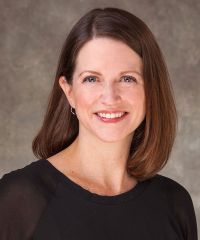A new walk-in care program at the UW Health 1102 S. Park St. Clinic aims to fill a crucial gap for people wanting help with substance use disorders. The new Compass Program, launched in January, removes common barriers to treatment according to the program’s director, DFMCH physician Elizabeth Salisbury-Afshar, MD, MPH.

Elizabeth Salisbury-Afshar, MD, MPH
“Many people seeking care want help but do not have a relationship with a medical provider or they do not have insurance and cannot afford the help they want,” says Salisbury-Afshar. “Our goal is to meet people where they are, to provide a health care environment where people struggling with substance use disorders feel welcome and safe.”
The clinical team can prescribe medications for opioid use disorder, provide basic wound care, hepatitis testing and treatment, sexually transmitted infection testing and treatment, and basic family planning services.
The program is open from 8 a.m. to 5 p.m., Tuesdays and Fridays, and sees patients with or without insurance who walk in on a first-come, first-served basis. Patients can also be referred by a primary care physician, urgent care, emergency department or state agency.
The drop-in style is a distinct advantage for people who rely on public transportation or need to arrange childcare and cannot always get to an appointment on time. They may have been waiting weeks to see a provider, and if they miss the appointment, they face another long wait, Salisbury-Afshar adds.
“If you’re taking two buses to get here, you might be late,” she says. “Folks have a lot of different struggles they are working through, and whatever it is we know there are reasons people can’t always get to their appointments on time, which is one of the reasons we created this more flexible model.”
The program is supported by a state-funded grant that covers the cost of medical services, labs and medication treatments for substance use disorders for individuals without insurance. Salisbury-Afshar notes that the clinic is not a detox facility, but the team will work with patients who need higher levels of care and help link them to those services.
“If you are interested in receiving care related to your substance use, we are here and happy to work with you,” she says.
Published: February 2024
